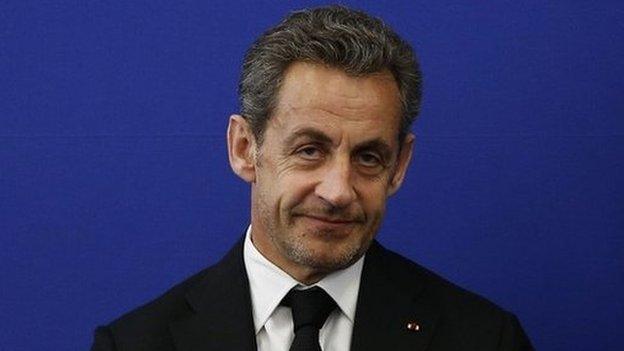French secret tapes of Sarkozy ruled legal in inquiry
- Published
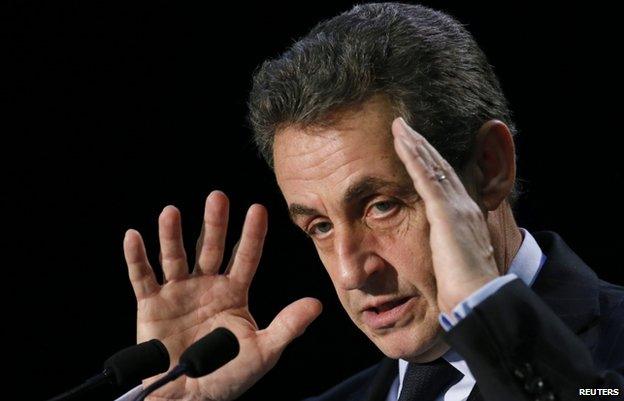
Mr Sarkozy is expected to challenge the ruling
A French court has ruled that wire-tapped conversations between ex-President Nicolas Sarkozy and his lawyer can be used as evidence in an ongoing corruption investigation.
The decision is seen as a blow for the centre-right leader, who is likely to bid again for the presidency in 2017.
Mr Sarkozy is suspected of promising a sought-after position to a judge in return for information on another case.
But he was already being bugged as part of the earlier investigation.
That case against Mr Sarkozy, the UMP leader, was eventually dropped.
But it involved accusations that elderly L'Oreal heiress Liliane Bettencourt had been financially exploited during the 2007 presidential campaign, with reports of brown envelopes being handed over stuffed with large amounts of cash.
He was placed under formal investigation on suspicion of influence-peddling last July, after hours of questioning - reportedly the first time a former French head of state had been held in police custody.

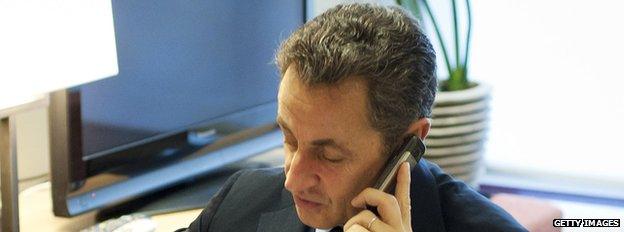
Sarkozy's wire-tapped conversations with his lawyer
30 Jan 2014: Lawyer Thierry Herzog (talking about magistrate Gilbert Azibert): "He's had access to the rapporteur's opinion, that will never be published... This opinion concludes with the removal of all references to your diaries... That's really some job, you know!"
5 Feb 2014: Thierry Herzog: "He told me, 'You can tell the president I'm optimistic'. I told him that you would receive him afterwards.
Nicolas Sarkozy responds: "I'll promote him!" and later, "I'll help him".

The wire-taps revealed that Mr Sarkozy, using a prepaid mobile phone registered under the alias of Paul Bismuth, had promised a prestigious role in Monaco to a magistrate in exchange for information about the Bettencourt inquiry.
The magistrate, Gilbert Azibert, was never given the job and Mr Sarkozy denied wrongdoing.
But the conversations Mr Sarkozy had with his lawyer, Thierry Herzog, have now been allowed as evidence by the Paris Appeals Court.
Mr Sarkozy argues that the call was subject to lawyer-client privilege.
Lawyers for him and Mr Herzog said they would appeal against the ruling to France's top court, the Cour de Cassation.
- Published2 July 2014
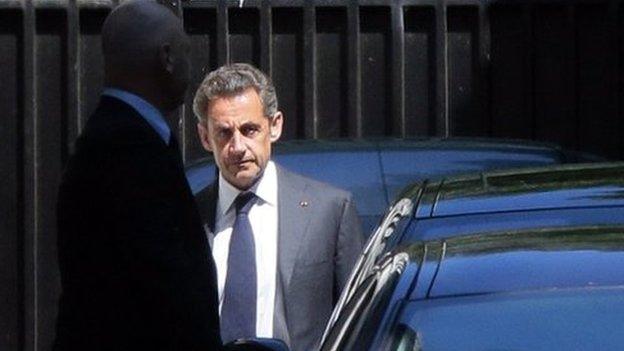
- Published8 January
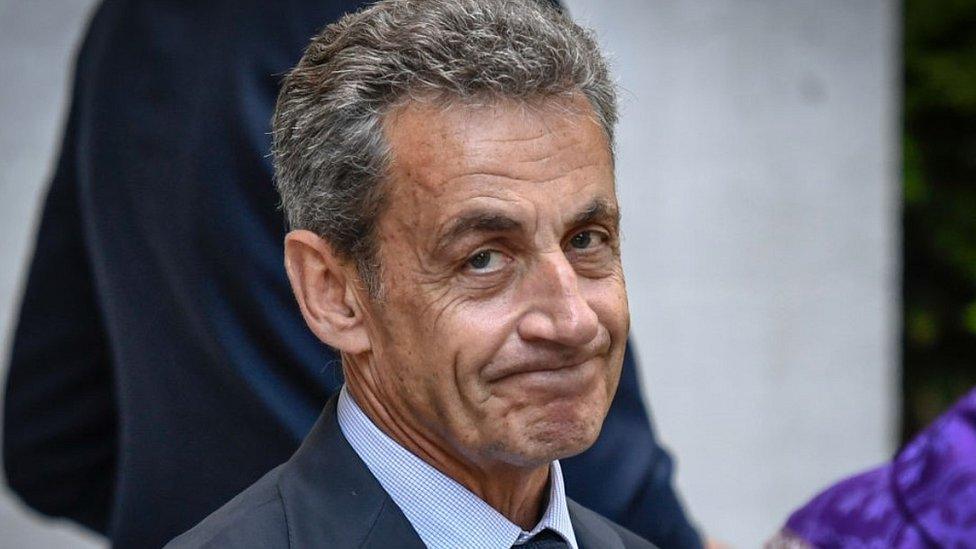
- Published19 September 2014
